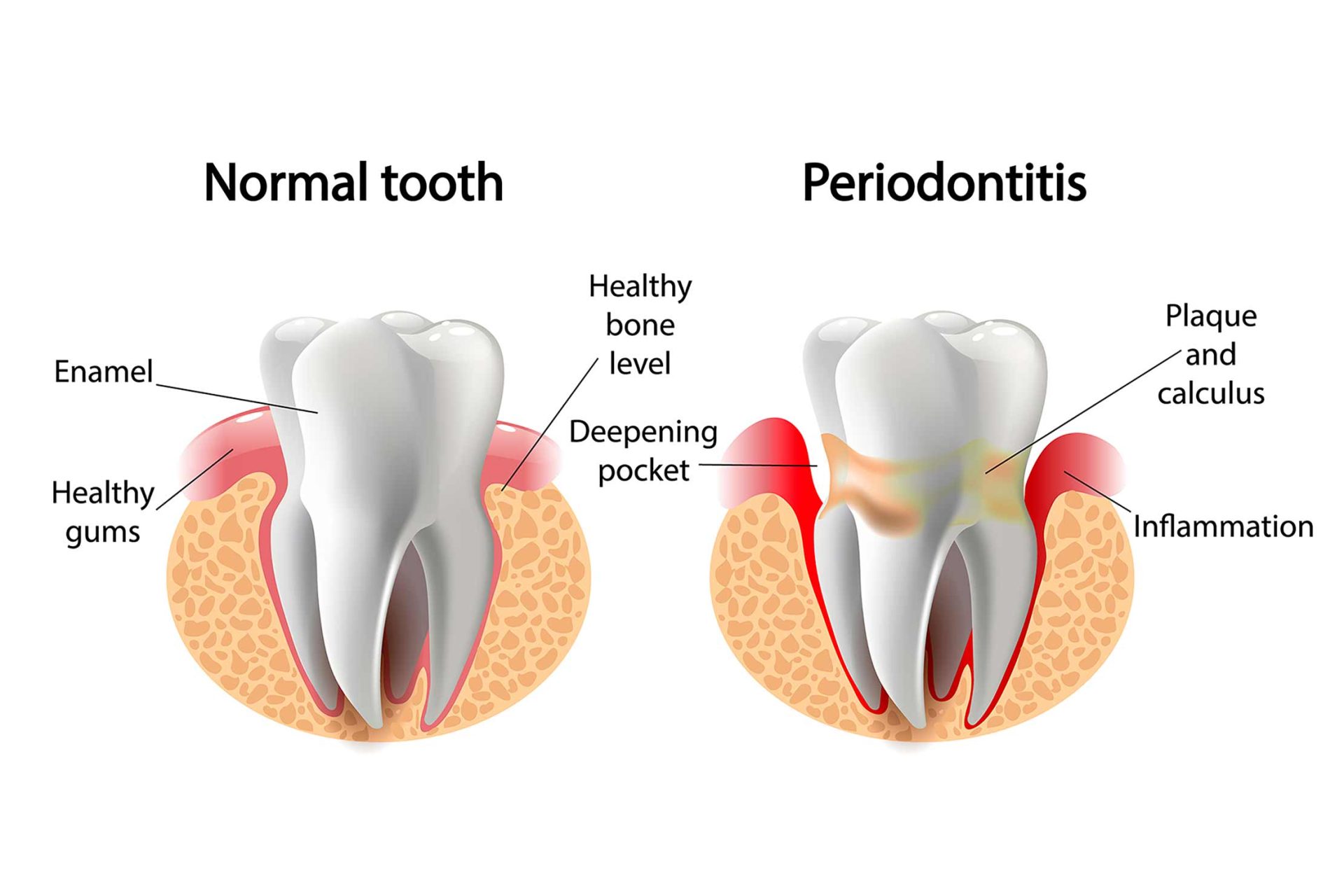Periodontal disease is an infection of the tissues that support your teeth. If you have periodontal disease, you may be experiencing persistent bad breath, bleeding of the gums when brushing or flossing, soft, swollen, or tender gums, exposed or sensitive roots or loose teeth. You may also notice inflammation of the gums between the teeth.
- Main cause is accumulation of plaque, the sticky film of food and bacteria that forms constantly on your teeth. If the plaque is not removed everyday, the bacteria in plaque invade the spaces between the teeth and gums and begin producing toxins. These toxins, combined with your body’s reaction to them, destroy the bone around your teeth. Once bone has been lost, it never grows back on its own. When too much bone is lost, there’s so little support for the teeth, they get loose and have to be removed.
- Early detection is the key to successful treatment. The results of this exam will determine your periodontal status. If you have periodontal disease your treatment will be personalized for you and your level of infection.
- For moderate cases of gum disease, our dentists will recommend scaling and root planing, also known as a deep cleaning. To perform this nonsurgical treatment, we use special tools to remove bacteria around and just below the gum line. Scaling cleans bacteria and plaque from the tooth and the pocket between it and the gums. Then planing smoothes the inflamed root to prevent reinfection.
- The total length of treatment depends on the severity of the infection, but scaling and root planing is usually carried out over two to four visits to the dentist. It may be combined with antibiotic therapy to fully heal your gums of the infection. Local anesthesia is available for your comfort during each scaling and root planing treatment.
